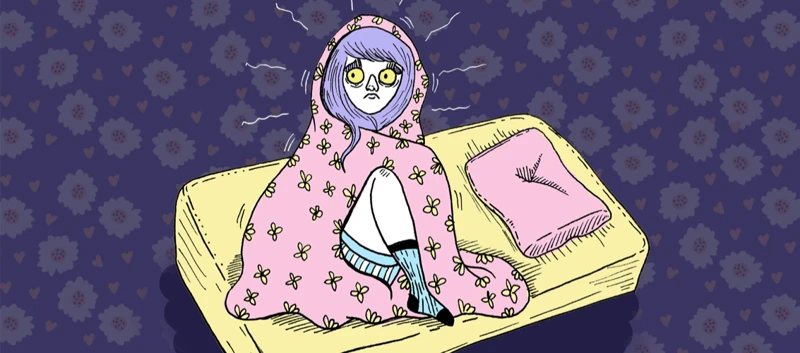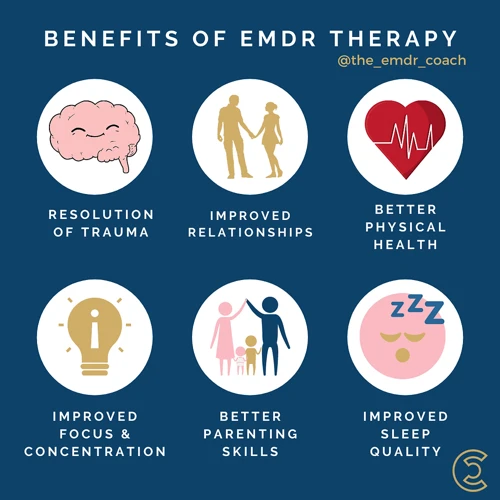Are anxiety-related nightmares keeping you up at night? If so, you’re not alone. Many individuals experience distressing dreams that are directly linked to their anxiety. These nightmares can be incredibly disruptive, leading to poor sleep quality, increased anxiety levels, and a general feeling of unease. However, there is hope. Therapy has proven to be a highly effective tool in alleviating anxiety-related nightmares and helping individuals regain control over their sleep and mental well-being. In this article, we will explore the potential benefits of therapy for anxiety-related nightmares and discuss different therapeutic approaches that can be used to manage and reduce their frequency. So, if you’re tired of nights filled with unsettling dreams, keep reading to discover how therapy may hold the key to a better night’s sleep.
Understanding Anxiety-Related Nightmares

Anxiety-related nightmares are a specific type of dream that occurs during sleep and is directly linked to anxiety. These nightmares often involve intense feelings of fear, panic, or distress, and can be extremely vivid and realistic. They may also be recurrent, causing a cycle of disrupted sleep and heightened anxiety. One important aspect to consider is the relationship between anxiety, nightmares, and sleep disorders. Research has shown that there is a strong correlation between anxiety disorders and sleep disturbances, including nightmares. In fact, individuals with anxiety disorders are more likely to experience nightmares compared to those without anxiety. This suggests that there is a complex interplay between anxiety, sleep, and nightmares. Stress also plays a significant role in the impact of nightmares. High levels of stress can trigger or exacerbate anxiety-related nightmares, making them more frequent and intense. It is important to note that while anxiety-related nightmares can be distressing, they are a natural response to anxiety and can provide valuable insights into the underlying causes of anxiety. Understanding the connection between nightmares and anxiety is crucial in developing effective therapeutic strategies for managing and alleviating these distressing dreams and improving overall well-being. To learn more about the relationship between nightmares, anxiety, and sleep disorders, you can explore the relationship of nightmares and anxiety with sleep disorders.
Potential Causes of Anxiety-Related Nightmares

Anxiety-related nightmares can be triggered by various factors and underlying causes. One potential cause is stress. Stressful events or situations can overload the mind, leading to heightened anxiety levels that may manifest in nightmares during sleep. Stress can also disrupt sleep patterns, further exacerbating the occurrence of anxiety-related nightmares. Traumatic experiences, such as past abuse, accidents, or witnessing a distressing event, can also contribute to the development of these nightmares. Post-traumatic stress disorder (PTSD) is closely linked to anxiety-related nightmares, as individuals may relive the traumatic event in their dreams. Other possible causes include certain medications, substance abuse, and underlying mental health conditions such as anxiety disorders, depression, or panic disorders. It is important to note that the causes of anxiety-related nightmares can vary from person to person. Identifying the specific triggers or underlying issues that contribute to these nightmares is a crucial step in addressing and managing them effectively. To explore more about the impact of stress on nightmares, you can read our article on stress and its impact on nightmares.
The Role of Therapy in Managing Anxiety-Related Nightmares

Therapy plays a crucial role in managing and alleviating anxiety-related nightmares. One widely used therapeutic approach is Cognitive-Behavioral Therapy (CBT), which focuses on identifying and challenging the negative thought patterns and beliefs that contribute to anxiety and nightmares. CBT helps individuals develop healthier coping mechanisms and strategies to address their anxiety and associated sleep disturbances. Exposure therapy is another effective technique used in managing anxiety-related nightmares. It involves gradually exposing individuals to situations or triggers associated with their anxiety in a safe and controlled manner. This exposure helps individuals become desensitized to these triggers, leading to a reduction in anxiety and subsequent nightmares. Eye Movement Desensitization and Reprocessing (EMDR) is a specialized therapy that has shown promise in treating trauma-related nightmares. It involves a structured approach of reprocessing traumatic memories, which can significantly reduce the intensity and frequency of anxiety-related nightmares. Additionally, relaxation techniques like deep breathing exercises, progressive muscle relaxation, and mindfulness have been found to reduce anxiety and promote better sleep, ultimately reducing the occurrence of nightmares. By addressing the underlying causes of anxiety and teaching individuals effective coping strategies, therapy provides a holistic approach to managing anxiety-related nightmares and improving overall mental well-being. To learn more about the connection between nightmares and anxiety, you can explore the nightmares and anxiety connection.
Cognitive-Behavioral Therapy (CBT)
has been widely recognized as an effective therapeutic approach for managing anxiety-related nightmares. CBT aims to identify and challenge negative thought patterns and behaviors that contribute to anxiety, including the content and frequency of nightmares. During CBT sessions, individuals work closely with a therapist to explore and reframe their thoughts and beliefs about nightmares. This may involve examining the underlying fears and anxieties that fuel the nightmares and learning healthier coping mechanisms to manage them. CBT techniques such as cognitive restructuring help individuals replace negative or irrational thoughts with more balanced and realistic ones. This can reduce the intensity of the nightmares and alleviate associated anxiety. In addition to addressing the cognitive aspect, CBT also focuses on behavioral strategies. These may include implementing a structured sleep routine, practicing relaxation techniques before bedtime, and gradually exposing oneself to feared dream scenarios in a controlled and safe manner. CBT is a collaborative process that empowers individuals to take an active role in managing their anxiety-related nightmares and provides them with valuable tools to promote long-term change and improved sleep quality.
Exposure Therapy
Exposure therapy is a type of psychotherapeutic approach commonly used in the treatment of anxiety disorders, including anxiety-related nightmares. It is based on the principle of facing and gradually exposing oneself to the source of fear or anxiety in order to reduce its impact and desensitize the individual to it. When applied to anxiety-related nightmares, exposure therapy aims to help individuals confront their fears and anxieties within the dream itself, eventually lessening their distressing impact.
There are several techniques used in exposure therapy for anxiety-related nightmares:
1. Imaginal Exposure: This technique involves mentally rehearsing the nightmare scenario in a controlled and safe environment, such as during a therapy session. Individuals are encouraged to vividly imagine the nightmare, facing their fears and anxieties associated with it. Through repeated exposure to the nightmare imagery, the brain is gradually desensitized, leading to a reduction in fear and distress.
2. In Vivo Exposure: In this technique, individuals expose themselves to real-life situations or triggers that resemble elements of their nightmares. For example, if someone frequently has nightmares about being trapped, they may gradually expose themselves to confined spaces. The therapist guides and supports the individual through these exposures, helping them manage their anxiety and gradually overcome their fears.
3. Virtual Reality Exposure: With advancements in technology, virtual reality (VR) has emerged as a valuable tool in exposure therapy. Individuals can recreate their nightmare scenarios in a virtual environment and engage with them in a controlled and immersive way. This allows for a realistic and safe exposure experience, enhancing the effectiveness of the therapy.
Exposure therapy aims to break the cycle of anxiety and avoidance that often perpetuates anxiety-related nightmares. By confronting and gradually desensitizing individuals to their fears, they can gain a sense of mastery and reduce the power that nightmares hold over their emotions. It is important to note that exposure therapy should always be conducted under the guidance and supervision of a trained therapist to ensure safety and optimal outcomes.
Eye Movement Desensitization and Reprocessing (EMDR)
is a highly effective therapeutic approach for addressing anxiety-related nightmares. This technique was originally developed to treat post-traumatic stress disorder (PTSD), but it has also been found to be beneficial for individuals experiencing nightmares related to anxiety. EMDR involves a structured protocol that combines aspects of cognitive-behavioral therapy (CBT) with bilateral stimulation, such as eye movements, hand taps, or auditory tones.
During an EMDR session, the therapist guides the individual through recalling distressing memories or experiences while simultaneously engaging in bilateral stimulation. This dual focus helps to facilitate the processing of traumatic or anxiety-inducing memories, allowing the individual to reframe and reprocess their emotions and beliefs associated with these experiences. By doing so, the distressing emotions and intrusive thoughts associated with anxiety-related nightmares can be significantly reduced or eliminated altogether.
EMDR targets the root causes of anxiety-related nightmares, addressing the underlying memories and beliefs that contribute to their occurrence. The process involves identifying specific nightmares or anxiety-provoking situations and working through the associated emotions, thoughts, and sensations. EMDR aims to desensitize the individual to their triggers and reprocess the negative associations, resulting in a reduction in nightmare frequency and intensity.
One of the unique aspects of EMDR is the use of bilateral stimulation. This can be done through eye movements, where the individual follows the therapist’s fingers back and forth with their eyes, or through other forms of bilateral sensory input. The bilateral stimulation is thought to stimulate both sides of the brain, promoting the integration of traumatic or anxiety-inducing memories and their associated emotions.
EMDR offers a structured and effective approach for addressing anxiety-related nightmares. It can help individuals process and heal from underlying traumatic experiences or anxiety triggers, leading to a reduction in nightmares and improved overall well-being. If you’re interested in exploring the benefits of EMDR therapy further, you can read more about it on this article exploring the connection between nightmares and anxiety.
Relaxation Techniques
Relaxation techniques can be a valuable tool in managing and alleviating anxiety-related nightmares. These techniques aim to promote relaxation, reduce stress levels, and create a sense of calmness, all of which can contribute to a more peaceful sleep experience. One effective relaxation technique is deep breathing exercises. Deep breathing involves taking slow, deep breaths, focusing on the sensation of air filling the lungs, and then exhaling slowly. This practice helps activate the body’s relaxation response, calming the nervous system and reducing anxiety. Progressive muscle relaxation is another technique that can be beneficial. This involves systematically tensing and then releasing different muscle groups in the body, promoting physical relaxation and a sense of release of tension. Additionally, guided imagery can be used to create a calming mental image or scenario, helping to shift focus away from anxious thoughts and promoting relaxation. Other relaxation techniques that can be explored include meditation, mindfulness exercises, and aromatherapy. It is important to find the relaxation technique that works best for each individual, as preferences can vary. Incorporating these techniques into a bedtime routine can create a soothing environment conducive to a more peaceful sleep, reducing the likelihood of anxiety-related nightmares. Remember, finding effective relaxation techniques may require some experimentation and personalization.
Benefits of Therapy for Anxiety-Related Nightmares

Therapy offers a range of benefits for individuals struggling with anxiety-related nightmares. Firstly, therapy can significantly reduce the frequency of nightmares, providing relief from the distress and disruption they cause. By addressing the underlying causes of anxiety, therapy helps individuals develop coping strategies to manage their fears and anxieties, which can directly impact the occurrence of nightmares. Therapy can improve sleep quality, allowing individuals to experience more restful and rejuvenating sleep. This can lead to increased energy levels and a better overall sense of well-being. Additionally, therapy can lead to decreased levels of anxiety, as individuals learn to identify and challenge negative thought patterns and develop healthier coping mechanisms. Through therapy, individuals gain a deeper understanding of the root causes of their anxiety, facilitating personal growth and self-awareness. The benefits of therapy for anxiety-related nightmares extend beyond alleviating the immediate symptoms and create positive changes in one’s overall mental health and quality of life.
Reduction in Nightmare Frequency
Individuals suffering from anxiety-related nightmares often experience a high frequency of these distressing dreams, which can severely impact their sleep quality and overall well-being. However, one of the potential benefits of therapy for anxiety-related nightmares is a reduction in nightmare frequency. Therapy approaches such as Cognitive-Behavioral Therapy (CBT), Exposure Therapy, Eye Movement Desensitization and Reprocessing (EMDR), and relaxation techniques have shown promising results in helping individuals decrease the occurrence of nightmares.
Cognitive-Behavioral Therapy (CBT) focuses on identifying and challenging negative thought patterns and beliefs that contribute to anxiety and nightmares. By working with a therapist, individuals can learn strategies to reframe their thoughts and beliefs, reducing anxiety and subsequently decreasing the likelihood of experiencing nightmares.
Exposure Therapy involves gradually exposing individuals to the situations or triggers that provoke anxiety-related nightmares in a controlled and safe environment. This helps individuals confront and overcome their fears, ultimately decreasing the occurrence of distressing dreams.
Eye Movement Desensitization and Reprocessing (EMDR) is a therapeutic technique specifically designed to address traumatic experiences that may be contributing to anxiety-related nightmares. By using bilateral stimulation and guided recall of distressing memories, EMDR can help individuals process and reframe traumatic experiences, leading to a reduction in nightmares.
Relaxation techniques, such as deep breathing exercises, meditation, and progressive muscle relaxation, can also be effective in reducing anxiety and promoting a sense of calmness before sleep. These techniques help individuals relax their minds and bodies, creating a conducive environment for a peaceful night’s sleep with fewer nightmares.
It’s essential to note that the effectiveness of therapy in reducing nightmare frequency can vary from person to person. Additionally, the duration of therapy and the specific approach used may also impact the results. However, by working closely with a qualified therapist and actively engaging in the therapeutic process, individuals have the potential to experience a significant reduction in the frequency of their anxiety-related nightmares, leading to improved sleep quality and overall well-being.
Improved Sleep Quality
Improved sleep quality is one of the significant benefits of therapy for anxiety-related nightmares. Anxiety-related nightmares can greatly disrupt sleep, causing frequent awakenings and difficulty in falling back asleep. This can lead to feelings of exhaustion, daytime sleepiness, and a general sense of unrest.
Therapeutic interventions, such as Cognitive-Behavioral Therapy (CBT), Exposure Therapy, Eye Movement Desensitization and Reprocessing (EMDR), and relaxation techniques, focus on addressing the underlying anxiety and reducing the frequency and intensity of nightmares. By addressing and managing anxiety, therapy can help individuals experience more restful and uninterrupted sleep.
CBT, for example, aims to identify and challenge negative thought patterns and beliefs that contribute to anxiety. Through techniques like cognitive restructuring and relaxation training, CBT helps individuals develop healthy coping strategies and improve their overall sleep hygiene. This leads to a reduction in anxiety-related nightmares and an improvement in sleep quality.
Similarly, Exposure Therapy helps individuals gradually face their fears and anxieties associated with nightmares. By confronting and processing the distressing elements of nightmares in a controlled and safe environment, individuals can desensitize themselves to these triggers, reducing their impact on sleep.
EMDR combines elements of exposure therapy with bilateral stimulation, such as eye movements or taps, to process traumatic memories and alleviate associated anxiety. This therapy can be effective in addressing the root causes of anxiety-related nightmares, ultimately improving overall sleep quality.
In addition to specific therapeutic approaches, relaxation techniques such as deep breathing, progressive muscle relaxation, and mindfulness meditation can be incorporated to reduce overall anxiety levels and promote better sleep. These techniques can help individuals relax both their mind and body, leading to improved sleep quality and a decreased likelihood of experiencing anxiety-related nightmares.
Therapy offers a comprehensive approach to managing and alleviating anxiety-related nightmares, resulting in improved sleep quality. By addressing the underlying anxiety and developing effective coping strategies, individuals can experience more restful and rejuvenating sleep, leading to an enhanced sense of well-being.
Decreased Anxiety Levels
When it comes to anxiety-related nightmares, one of the primary goals of therapy is to alleviate anxiety and reduce its impact on daily life. Through various therapeutic techniques and interventions, therapy can help individuals achieve decreased levels of anxiety. Here are a few ways in which therapy can contribute to reducing anxiety levels:
- Cognitive Restructuring: Therapy often involves cognitive restructuring, which aims to identify and challenge distorted thoughts and beliefs that contribute to anxiety. By recognizing and reframing negative thought patterns, individuals can develop a more balanced and realistic perspective, leading to reduced anxiety levels.
- Stress Management Techniques: Therapists may teach stress management techniques such as deep breathing exercises, meditation, and progressive muscle relaxation. These techniques can help individuals relax their bodies and calm their minds, effectively reducing anxiety levels.
- Anxiety Coping Strategies: Therapy provides individuals with tools and coping strategies to manage anxiety. This may include strategies such as grounding techniques, distraction techniques, and self-soothing techniques. By learning and implementing these strategies, individuals can effectively cope with anxiety triggers and experience a decrease in overall anxiety levels.
- Exposure and Response Prevention: Exposure therapy, a specific type of therapy, involves gradually exposing individuals to anxiety-provoking situations or stimuli. Through controlled exposure and the prevention of maladaptive responses, individuals can learn to tolerate anxiety and reduce their overall anxiety levels.
- Support and Validation: One of the fundamental aspects of therapy is providing a supportive and validating environment. Through therapist-client interactions, individuals feel heard, understood, and validated, which can contribute to a decrease in anxiety levels. The therapeutic relationship itself can serve as a powerful source of comfort and reassurance.
By engaging in therapy and utilizing these techniques, individuals can experience a significant reduction in anxiety levels, which can directly impact the intensity and frequency of anxiety-related nightmares. It is important to remember that the effectiveness of therapy may vary for each individual, and it’s crucial to find the right therapeutic approach and therapist to address specific anxiety concerns.
Enhanced Coping Skills
Enhanced coping skills play a crucial role in the therapeutic approach to anxiety-related nightmares. Coping skills refer to the strategies and techniques that individuals use to manage and reduce their anxiety and distress. Through therapy, individuals can develop and enhance their coping skills, enabling them to effectively deal with the impact of anxiety-related nightmares on their daily lives. Therapy can help individuals identify their specific triggers and stressors that contribute to their nightmares. By gaining a deeper understanding of these triggers, individuals can learn how to implement coping mechanisms that mitigate the negative effects of anxiety-related nightmares. These coping skills can include relaxation techniques, such as deep breathing exercises, progressive muscle relaxation, and mindfulness meditation, which help individuals to reduce their overall anxiety levels and promote a sense of calmness. Additionally, therapists may teach individuals cognitive restructuring techniques that challenge and reframe negative thought patterns associated with anxiety-related nightmares. This can lead to more positive and realistic thinking, reducing the intensity and recurrence of distressing dreams. Therapy can also provide individuals with a safe space to express their emotions and fears related to their nightmares, allowing for validation and support. Through this process, individuals can gain a sense of empowerment and resilience, equipping them with the tools to navigate and cope with anxiety-related nightmares more effectively.
Understanding Root Causes
- Anxiety disorders: Anxiety-related nightmares can stem from underlying anxiety disorders such as generalized anxiety disorder (GAD), panic disorder, or post-traumatic stress disorder (PTSD). These disorders often manifest during sleep, impacting the content and intensity of nightmares.
- Stress and trauma: Stressful life events, traumatic experiences, or ongoing chronic stress can contribute to the development of anxiety-related nightmares. These experiences may trigger intense emotions and anxiety, leading to vivid and distressing dreams during sleep.
- Unresolved emotions: Suppressed or unprocessed emotions related to anxiety and stressful experiences can manifest in nightmares. Unresolved feelings of fear, guilt, or anger can surface during sleep, causing anxiety-related nightmares.
- Medication and substance use: Certain medications or substances, such as antidepressants, anti-anxiety medications, or alcohol, can affect sleep patterns and contribute to the occurrence of nightmares in individuals with anxiety.
- Underlying sleep disorders: Sleep disorders, such as insomnia or sleep apnea, can disrupt normal sleep patterns and increase the likelihood of experiencing anxiety-related nightmares. Addressing these underlying sleep issues is essential for managing and reducing the occurrence of nightmares.
Understanding the root causes of anxiety-related nightmares is crucial in developing an effective therapeutic approach. By identifying and addressing the underlying factors contributing to these nightmares, individuals can gain a better understanding of their anxiety and work towards finding suitable coping strategies. It is also important to remember that everyone’s experiences and triggers are unique, so exploring these root causes with a therapist can provide personalized insight and guidance on how to alleviate anxiety-related nightmares effectively.
Choosing the Right Therapist and Approach
When it comes to choosing the right therapist and approach for managing anxiety-related nightmares, there are several factors to consider. First and foremost, it is important to find a therapist who specializes in treating anxiety disorders and has experience working with individuals who have nightmares. Look for therapists who have a background in cognitive-behavioral therapy (CBT), exposure therapy, or eye movement desensitization and reprocessing (EMDR), as these approaches have been found to be effective in addressing anxiety-related nightmares. Additionally, consider the therapist’s communication style and their ability to create a safe and supportive environment for therapy sessions. It can be beneficial to schedule an initial consultation or phone call with potential therapists to discuss your specific needs and get a sense of their approach. Another important factor to consider is your personal preferences and comfort level with different therapeutic techniques. Some individuals may prefer a more structured approach like CBT, while others may be open to alternative techniques such as relaxation techniques or mindfulness practices. Ultimately, the right therapist and approach will depend on your individual needs and preferences, so it is important to take the time to research and find a therapist who feels like the right fit for you.
Conclusion
In conclusion, therapy offers a promising solution for alleviating anxiety-related nightmares and improving overall well-being. Whether through cognitive-behavioral therapy (CBT), exposure therapy, eye movement desensitization and reprocessing (EMDR), or relaxation techniques, therapy provides individuals with effective tools and coping strategies to manage and reduce the frequency of nightmares. The benefits of therapy extend beyond just a reduction in nightmare frequency, but also include improved sleep quality, decreased anxiety levels, enhanced coping skills, and a better understanding of the root causes of anxiety-related nightmares. When seeking therapy for anxiety-related nightmares, it is important to choose the right therapist and approach that aligns with your specific needs and preferences. Remember, you don’t have to suffer in silence when it comes to anxiety-related nightmares – therapy can lead you towards a better night’s sleep and a brighter future.
Frequently Asked Questions
1. Can anxiety-related nightmares be a symptom of an anxiety disorder?
Yes, anxiety-related nightmares can be a symptom of an anxiety disorder. They are often a manifestation of underlying anxiety and can occur in conditions such as generalized anxiety disorder, post-traumatic stress disorder (PTSD), and panic disorder.
2. Are anxiety-related nightmares different from regular nightmares?
Yes, anxiety-related nightmares are distinct from regular nightmares. They are specifically linked to anxiety and are often characterized by intense feelings of fear, panic, or distress. These nightmares are more likely to be recurring and can significantly disrupt sleep.
3. Can medication effectively alleviate anxiety-related nightmares?
Medication can sometimes help reduce anxiety-related nightmares, particularly if they are a symptom of an underlying anxiety disorder. However, therapy is generally considered the primary treatment approach, as it aims to address the root causes of anxiety and provide long-term relief.
4. How do anxiety-related nightmares affect sleep quality?
Anxiety-related nightmares can greatly impact sleep quality. They can cause frequent awakenings, difficulty falling back asleep, and an overall sense of restlessness during the night. As a result, individuals may experience daytime fatigue, irritability, and impaired functioning.
5. Can children and adolescents also experience anxiety-related nightmares?
Yes, children and adolescents can also experience anxiety-related nightmares. Similar to adults, these nightmares may be linked to anxiety disorders or high levels of stress. Seeking therapy for children and adolescents experiencing anxiety-related nightmares is essential for their well-being.
6. Are relaxation techniques effective in managing anxiety-related nightmares?
Yes, relaxation techniques can be beneficial in managing anxiety-related nightmares. Practices such as deep breathing exercises, progressive muscle relaxation, and guided imagery can help reduce anxiety levels, promote relaxation, and improve the overall quality of sleep.
7. How long does therapy usually take to alleviate anxiety-related nightmares?
The duration of therapy to alleviate anxiety-related nightmares can vary depending on several factors, including the severity of the nightmares, the individual’s response to therapy, and the underlying causes of anxiety. It is typically a gradual process that may require several weeks or months of consistent therapy sessions.
8. Can therapy for anxiety-related nightmares also improve overall mental well-being?
Yes, therapy for anxiety-related nightmares can improve overall mental well-being. By addressing and managing anxiety, therapy can have a positive impact on various aspects of life, including emotional well-being, coping skills, and overall psychological functioning.
9. Is it necessary to explore the root causes of anxiety to alleviate nightmares?
Exploring the root causes of anxiety is often a crucial aspect of therapy for anxiety-related nightmares. By identifying and addressing the underlying factors contributing to anxiety, therapists can develop targeted strategies to alleviate nightmares and promote long-lasting relief.
10. Can therapy for anxiety-related nightmares be combined with medication?
Yes, therapy for anxiety-related nightmares can be combined with medication. In some cases, a combination of therapy and medication may be recommended to effectively manage anxiety symptoms and improve sleep quality. It is best to consult with a healthcare professional for personalized treatment recommendations.








